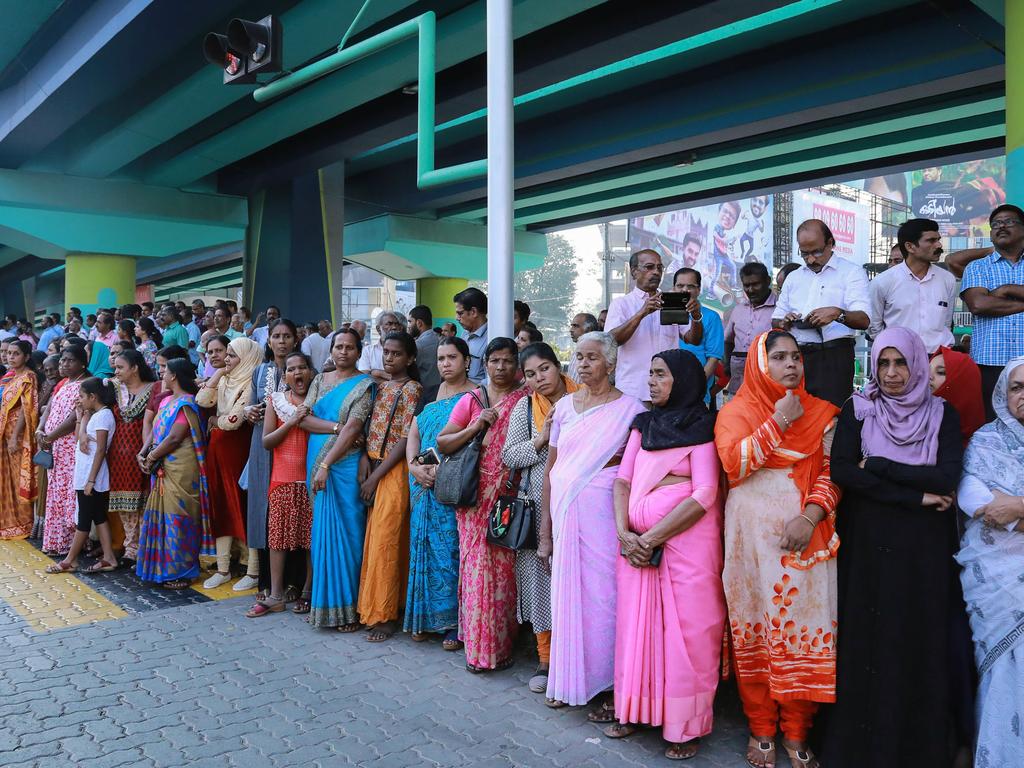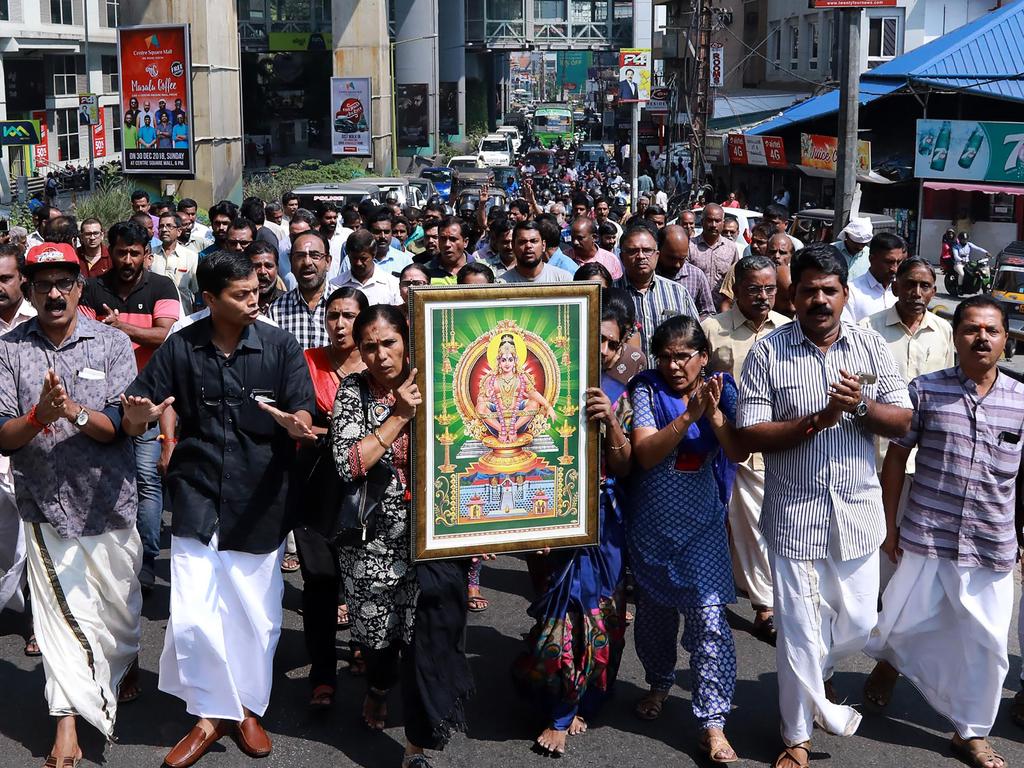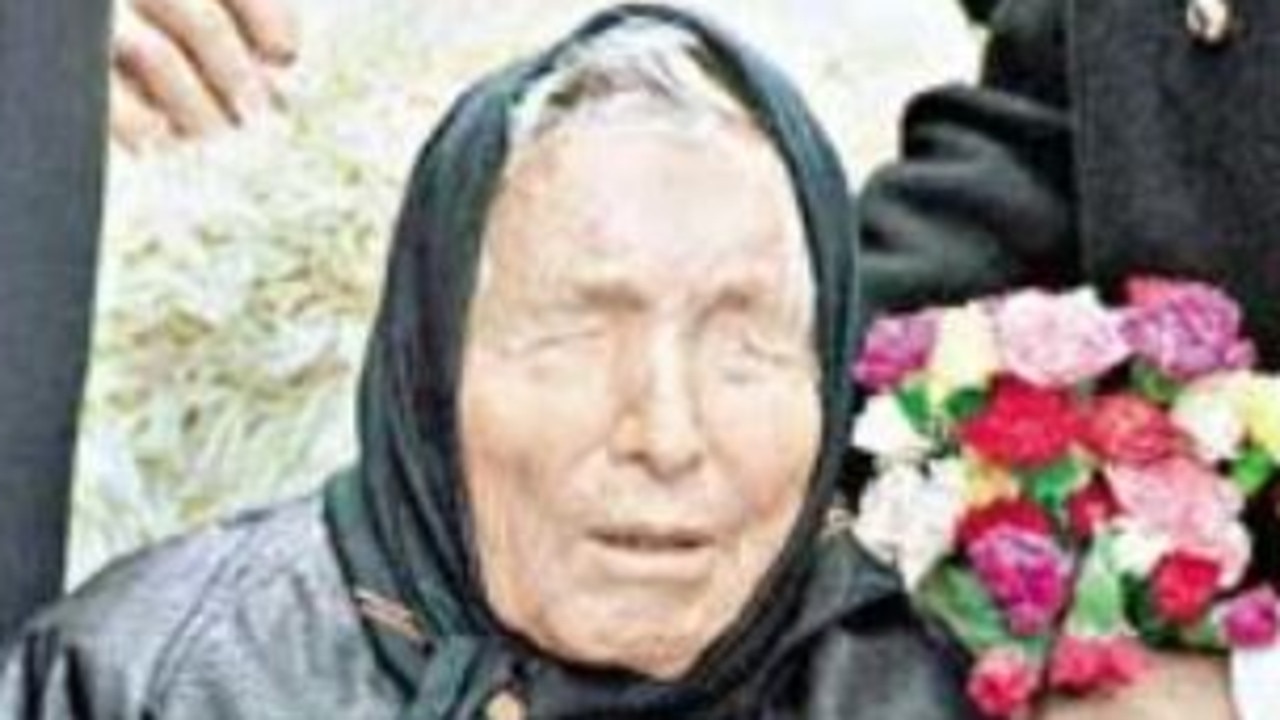Why Indian women formed a beautiful 620km long human wall
Millions of women standing for gender equality in India have formed a “beautiful” human wall stretching 620km long.
“They came like streams, joined to form rivers, merged in an ocean of humanity and progressive thinking.”
Such was the sentiment from people who witnessed an amazing show of support for gender equality when women formed a human wall in Kerala, India, this week.
Arjun Ramakrishnan, who captured the beautiful display that’s captivated the world in a series of tweets, thanked the “brave women” who “reinvigorated the whole state”.
Their stand came after two women entered one of India’s largest Hindu pilgrimage sites on Wednesday, sparking protests that saw police fire tear gas to disperse stone-throwing demonstrators who want to keep blocking women.
Women of menstruating age, between 10 and 50, had been banned from worshipping at Sabarimala temple informally for many years until it became law in 1972.
They came like streams, joined to form rivers, merged in an ocean of humanity and progressive thinking. A day to remember #OurRenaissance values and to pledge that we will carry it in our hearts forever.#VanithaMathil #WomensWall pic.twitter.com/7E5D7ZisoA
— Arjun Ramakrishnan (@aju000) January 1, 2019
Phenomenal! Never seen such a display of women power.
— Sudeep Sudhakaran (@SudeepSudhakrn) January 1, 2019
Down Down Patriarchy and Communalism #WomensWall pic.twitter.com/FtY4o45Chc
The Supreme Court lifted the ban in September, but despite the ruling, demonstrators including Hindu priests and conservatives continued to stop women from entering the centuries-old temple.
It was the first time women defied traditionalists and entered one of Hinduism’s holiest temples since the landmark court ruling, sparking protests and violence.
But in an amazing show of unity, women have since banded together to form a 620km human chain, organised by the state’s left-wing coalition government.
Organisers originally estimated the turnout at about three million but later told BBC Hindi’s Imran Qureshi that five million women had gathered from the Kasaragod in the north to Thiruvanthapuram in the south.
Wow. Over 5 million woman form a 620km (385-mile) human chain in #Kerala "in support of gender equality". Beautiful. https://t.co/097lexbuge#WomenWallKerala #womenswall #solidarity pic.twitter.com/pVdiUxPgIF
— Mike Hudema (@MikeHudema) January 2, 2019

Earlier videos showed the original protesters, 42-year-old women, Kanaka Durga and Bindu, who has only one name, wearing black tunics with their heads bowed as they rushed in to the temple with police help.
“We did not enter the shrine by climbing the 18 holy steps but went through the staff gate,” one of the women later told reporters.
The surprise pre-dawn operation was heralded by activists but enraged conservative devotees, with police helping the women leave undetected.
Hindu traditionalists have been backed by Prime Minister Narendra Modi’s Bharatiya Janata Party in preventing attempts by women to access the hilltop site.
As hardliners on the issue turned violent, police fired tear gas, stun grenades and water cannons as protests and clashes between the rival groups erupted across the southern state, with several officers injured.
As soon as news of the breach spread, the temple head priest ordered the shrine closed for a purification ritual. It reopened after about an hour.
Visuals of two women (Bindu and Kanaga Durga) at Sabarimala shrine earlier this morning pic.twitter.com/347z3KWAwU
— Arvind Gunasekar (@arvindgunasekar) January 2, 2019

Later clashes were reported between scores of people chanting slogans in front of the state parliament in Kerala’s state capital Thiruvananthapuram.
Some reportedly set fire to tyres.
The standoff petered out about five hours later after police intervened.
Five female protesters who tried to barge into the state parliament were arrested.
Journalists were also assaulted in Thiruvananthapuram and in the city of Kollam while clashes were reported elsewhere.
Police with batons charged at demonstrators who were trying to enforce a shutdown of shops and businesses in the area called for by the Sabarimala temple hierarchy.
Public bus services were suspended after protesters blocked their path and pelted vehicles with stones.
Feminist author Meena Kandasamy wrote watching the visuals of women making their way into the shrine made her cry in joy.
“How long it has taken for us to claim space, to write our way into history,” she said on Twitter.
What an unforgettable moment for Indian women--the first two young women to enter the Sabarimala Temple.. watching the visuals of them making their way into the shrine makes me cry in joy-- how long it has taken for us to claim space, to write our way into history.
— meena kandasamy (@meenakandasamy) January 2, 2019
September’s verdict was the latest progressive ruling from the court, with judges also overturning bans on gay sex and adultery last year, challenging Modi’s traditionalist BJP.
The restriction on women at Sabarimala reflects a belief, not exclusive to Hinduism, that menstruating women are impure.
Traditionalists argue also that the temple deity, Ayyappa, was celibate.
The Supreme Court is to start hearing a legal challenge to its ruling on January 22.
Women are still barred from a handful of Hindu temples in India.
- with wires




